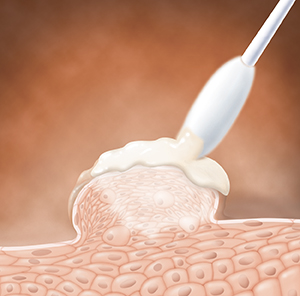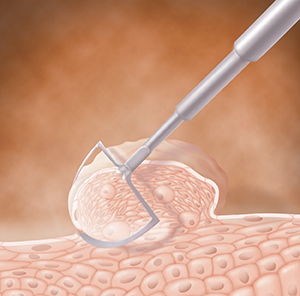A
B
C
D
E
F
G
H
I
J
K
L
M
N
O
P
Q
R
S
T
U
V
W
X
Y
Z
Back to Intro
Click a letter to see a list of medical procedures beginning with that letter.
Click 'Back to Intro' to return to the beginning of this section.
Treating Genital Warts
Genital warts sometimes go away on their own, stay unchanged, or grow in size and number. Depending on where the warts are, some treatments may work better than others. These treatments may remove the wart. But the virus that caused the wart often stays in the skin. And there is a chance of the warts returning.
Vaccine information
There is a vaccine that can prevent HPV and HPV-linked cancers. It's given to both men and women. To work best, the vaccine should be given at or before age 11 or 12, before the first possible exposure to the virus. The vaccine is approved by the FDA for some people up to age 45 depending on your risk. Talk with your healthcare provider to learn more.
Medicines
Prescription creams and gels can be applied to warts and nearby skin. Some prompt your immune system to fight against HPV (human papillomavirus), the virus that causes genital warts. Others are strong substances that destroy warts. Medicines can be applied at the healthcare provider's office or at home. Often more than 1 dose is needed. These treatments sometimes cause skin rashes. Talk with your healthcare provider about possible side effects.

Wart removal
Warts can be removed in many ways. These include freezing, heat (cautery), lasers, and surgery. These procedures are done by your regular healthcare provider or a specialist. Before treatment, you may be given local anesthesia to numb the area. The number of treatments depends on how many warts are being removed. Your healthcare provider can give you more details.

Online Medical Reviewer:
Barry Zingman MD
Online Medical Reviewer:
L Renee Watson MSN RN
Online Medical Reviewer:
Marianne Fraser MSN RN
Date Last Reviewed:
3/1/2022
© 2000-2025 The StayWell Company, LLC. All rights reserved. This information is not intended as a substitute for professional medical care. Always follow your healthcare professional's instructions.